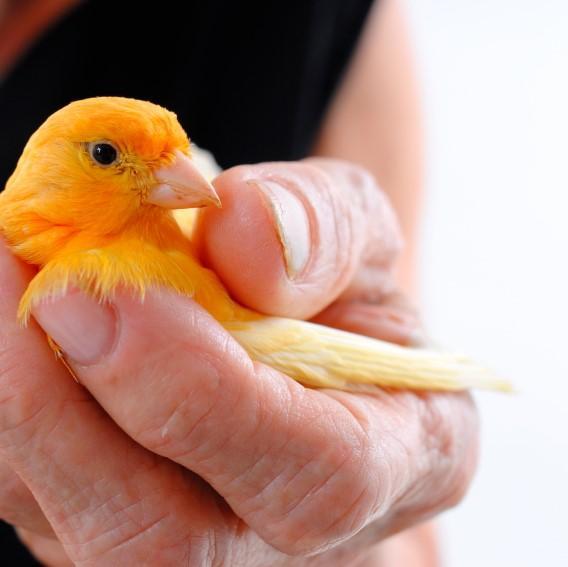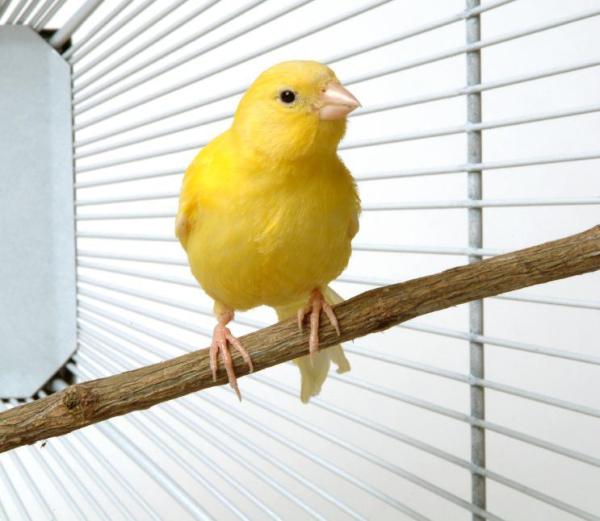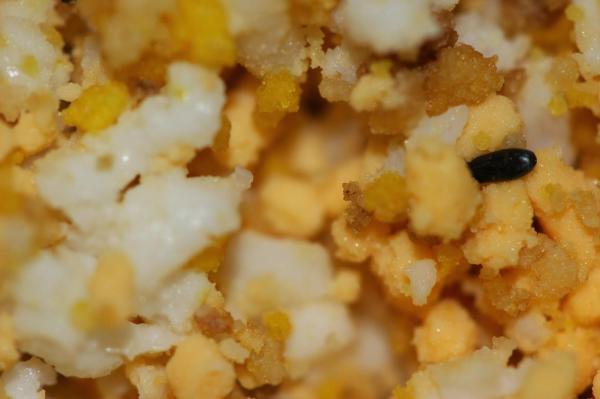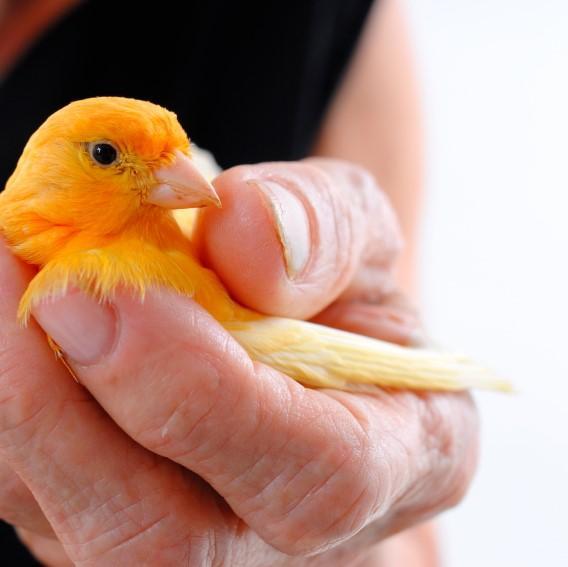Caring for a Molting Canary


We will never get tired of repeating that any pet that you decide to take into your home is going to need your time and care. Your pet should undergo regular veterinary checks, as its health and well-being should be assessed by the corresponding professional.
Birds are no exception. Even though they are not comparable in nature to cats or dogs, the fact is that they need lots of care. Furthermore, that care needs to be adapted to each of the bird's particular life stages, as they have different requirements in each one.
In this AnimalWised article we will talk about caring for a molting canary - after all, the molt is a process that you, as an owner, should monitor closely.
The canary's molt
Canaries' feathers are derivative structures of the skin, but biologically speaking they are dead. This means that they don't require a blood supply, but for that same reason they don't have the ability to regenerate. This is why the molt is a very important physiological process: It renews these structures that are so important to the life and development of the bird.
The hours of sunlight and heat have an impact on the canary's thyroid gland, which produces a rise in thyroid hormones in the blood. These are the biological trigger for the start of the molting period. The molt will first be observed in the wings, followed by a shedding of the tail feathers and finally a massive molt in the chest, back and head.
In the case of canaries, their first molt will not entail the shedding of all feathers. Those in the tail, wings and other areas necessary for flight will stay intact. This selective feather replacement ensures that the canary remains capable of flying to escape predators and explore its environment.
Understanding this natural cycle helps owners provide the best care. During this time, you might notice your canary appearing more lethargic, which is a normal response to the energy demands of molting. Providing an enriched environment with perches and toys can help stimulate physical activity and mental engagement, aiding in a smoother molting process.

How long does a canary's molting period last?
As mentioned previously, the elevated levels of thyroxine - responsible for the onset of the molt - are due to an increase in heat and sunlight hours. This is because the feathers then become less necessary owing to the temperature and abundance of available food.
The canary's molting period starts around the beginning of the summer and will last from 1 to 3 months - 2 months is the most common length. However, molting is a very stressful process for any bird, and the degree of stress will directly influence the duration of this physiological process.
It is important to note that individual canaries may experience variations in molting duration based on their health, diet, and environment. Providing a stable and stress-free environment can significantly help in reducing the stress associated with molting. Additionally, keeping the canary's cage in a quiet, well-ventilated area away from direct drafts will contribute to a more comfortable molting period.
Diet during the molting period
The canary's diet plays a very important role in the molting process, since optimal nutrition will be essential in achieving a durable, shiny and beautiful plumage.
The most important nutrient during the canary's molting period is protein, since it helps to generate new structures and synthesize large amounts of collagen. In order to meet the canary's protein requirements during this period, you should turn to two elements of great importance for its diet:
- Nestling food
- Protein-rich seeds, which should comprise 35% of the diet
In addition to proteins, as you'll see below, the canary will also need an extraordinary intake of micronutrients, that is, of vitamins and minerals.
Incorporating leafy greens and fruits such as spinach, kale, and apples can provide additional vitamins and antioxidants, supporting overall health during the molt. A balanced mix of these foods will not only cater to the nutritional needs but also introduce variety, encouraging the canary to eat more during this demanding period.
Here you can learn more about what is the best diet for a canary.

Nutrient and vitamin supplements for molting canaries
The molting process should be supported by a vitamin complex that also incorporates minerals. You should choose a product that's specifically designed for the canary's molting period and follow the recommended dosage for each case.
Finally, you should maximize caring for your canary during this period, since its stress levels will rise and this usually leads to a reduction in its defense system.
By following the proper steps you will guarantee a healthy molt. Your canary might stop singing during this period, but that should not be a cause for concern in any case, as it comes down to the low levels of testosterone during this process.
In addition to using vitamin supplements, offering fresh, clean water is crucial during the molting period. Hydration aids in the efficient transport of nutrients and the maintenance of healthy plumage. Regularly checking and cleaning the water supply will ensure your canary remains healthy and hydrated.

If you want to read similar articles to Caring for a Molting Canary, we recommend you visit our Skin care category.






 Hi .I have a 2yearold canary and he had lost a lot of feathers .the parable reason is he was in a house that was a bit noisy and had also 2 cats. I was hoping that after I brought him to my house which is quite house I expected that his will grow his feathers.do you think that he will grow his feathers when he molts? I put him in daylight sun everyday as I live in a sunny country (Malta) so I was thinking it will help him produce lost feathers .he is quite active and sings as well so he does not seem he is sick .I am sending you a photo of the canary.
Hi .I have a 2yearold canary and he had lost a lot of feathers .the parable reason is he was in a house that was a bit noisy and had also 2 cats. I was hoping that after I brought him to my house which is quite house I expected that his will grow his feathers.do you think that he will grow his feathers when he molts? I put him in daylight sun everyday as I live in a sunny country (Malta) so I was thinking it will help him produce lost feathers .he is quite active and sings as well so he does not seem he is sick .I am sending you a photo of the canary.




